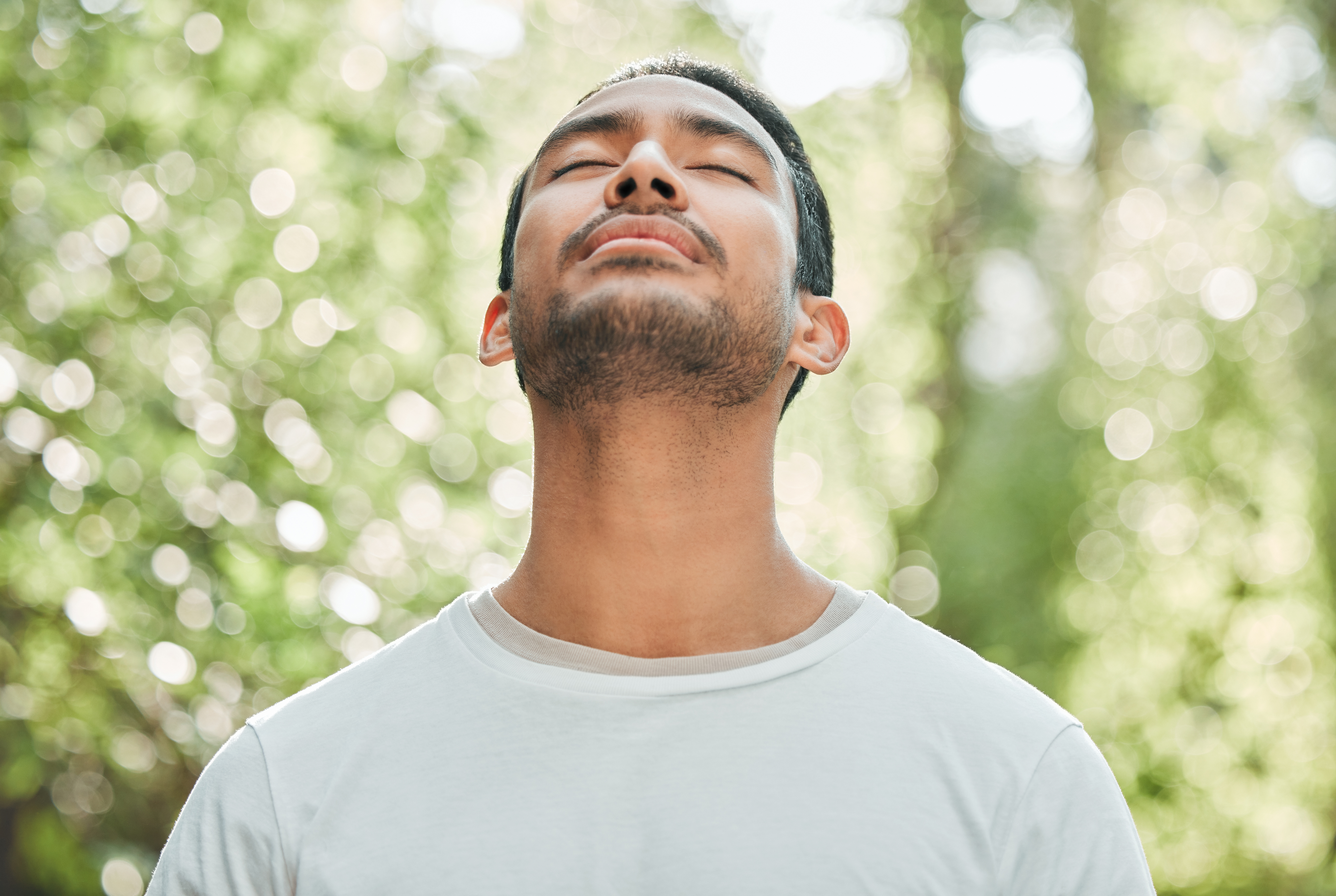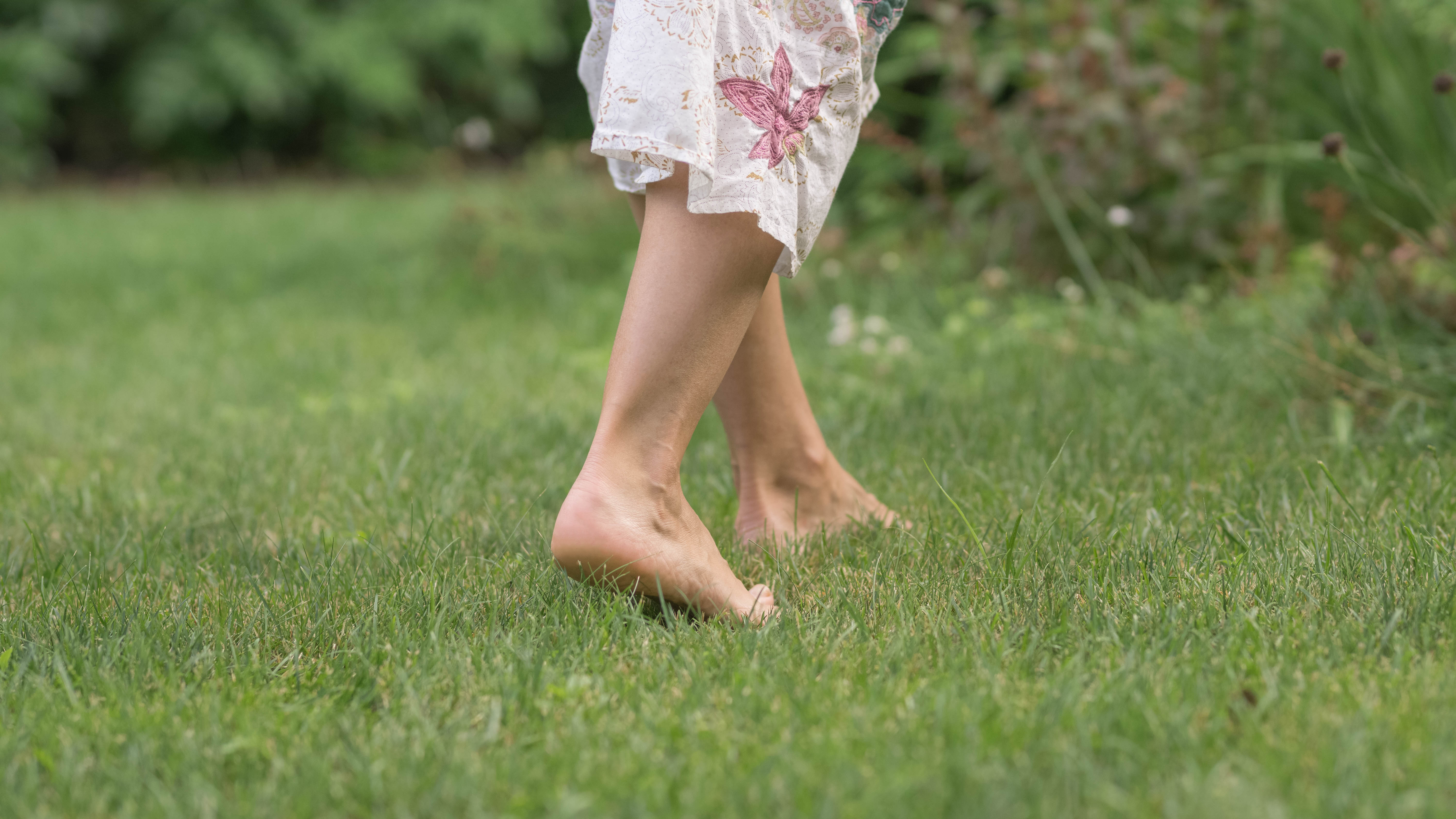Stress Biohacks: Reclaim Your Calm and Reshape Your Day
Stress isn’t just a feeling—it’s a full-body takeover. And in today’s world, it shows up uninvited, stays too long, and quietly drains your clarity, energy, and joy. But what if you could flip the script? What if, instead of managing stress, you could rewire your body to rise above it? We’ve expanded our guide to 18 revolutionary biohacks that do exactly that—simple, science-backed tools that turn chaos into calm and help you reclaim control from the inside out. From ancient grounding rituals to high-tech nervous system resets, these aren’t gimmicks—they’re powerful strategies designed to create real shifts in how you feel, think, and move through your day. Whether you’re drowning in deadlines or just tired of carrying invisible tension, these biohacks meet you where you are—and elevate you from there. Ready to trade survival mode for serenity? Let’s begin.
1. The Power of Mindfulness and Meditation

Mindfulness and meditation are ancient practices that have gained immense popularity in recent years, and for good reason. These practices involve focusing attention on the present moment, fostering a sense of awareness and acceptance. Numerous studies have demonstrated their effectiveness in reducing stress, anxiety, and depression. By cultivating mindfulness, individuals can break free from the cycle of rumination and worry, creating space for serenity and peace. Meditation, in particular, has been shown to alter brain structure and function. Regular practice can increase gray matter density in regions associated with emotional regulation and decrease activity in the default mode network, which is linked to mind-wandering and self-referential thoughts. These changes contribute to a calmer, more focused mind. Incorporating mindfulness and meditation into daily routines can serve as a powerful biohack for transforming stress into serenity, offering a profound sense of inner peace.
2. Harnessing the Healing Power of Nature

Nature has an unparalleled ability to soothe the mind and body, offering a sanctuary from the hustle and bustle of everyday life. The concept of "forest bathing," or Shinrin-yoku, originated in Japan and involves immersing oneself in a natural environment. This practice has been shown to lower cortisol levels, reduce blood pressure, and enhance immune function. By reconnecting with nature, individuals can tap into its healing power, fostering a sense of tranquility and well-being. Spending time in nature also encourages physical activity, which is a well-known stress reliever. Activities such as hiking, gardening, or simply walking in a park can provide a much-needed break from the digital world, allowing the mind to reset and recharge. The sensory experience of being in nature—listening to birdsong, feeling the breeze, and observing the beauty of the natural world—can be a potent antidote to stress. Embracing nature as a biohack for serenity offers a holistic approach to stress management that nurtures both the mind and body.
3. The Role of Nutrition in Stress Management

Nutrition plays a pivotal role in managing stress, as the foods we consume directly impact our mood and energy levels. A diet rich in whole foods, such as fruits, vegetables, whole grains, and lean proteins, provides essential nutrients that support brain health and hormone regulation. Omega-3 fatty acids, found in fish and flaxseeds, have been shown to reduce inflammation and promote cognitive function, while B vitamins and magnesium are crucial for maintaining a balanced mood. Conversely, a diet high in processed foods, sugar, and caffeine can exacerbate stress and anxiety. These substances can lead to blood sugar imbalances and increased cortisol production, creating a vicious cycle of stress. By making mindful dietary choices, individuals can support their body's natural stress response and promote a sense of calm. Incorporating nutrition as a biohack for stress management emphasizes the importance of nourishing the body from the inside out, paving the way for a more serene existence.
4. The Science of Sleep and Its Impact on Stress

Sleep is a fundamental component of overall well-being, and its impact on stress cannot be overstated. Quality sleep allows the body to repair and regenerate, while also playing a critical role in emotional regulation. During sleep, the brain processes emotions and memories, helping to reduce stress and anxiety. Chronic sleep deprivation, on the other hand, can lead to heightened stress levels, impaired cognitive function, and a weakened immune system. To harness the power of sleep as a biohack for stress reduction, it's essential to prioritize sleep hygiene. This includes maintaining a consistent sleep schedule, creating a relaxing bedtime routine, and optimizing the sleep environment. Practices such as limiting screen time before bed, reducing caffeine intake, and ensuring a comfortable sleep setting can significantly enhance sleep quality. By prioritizing sleep, individuals can support their body's natural stress-reduction processes, leading to a more peaceful and serene day.
5. The Art of Breathing for Stress Relief

Breathing is a simple yet powerful tool for managing stress and promoting relaxation. Deep, intentional breathing activates the parasympathetic nervous system, which counteracts the stress response by slowing the heart rate and lowering blood pressure. Techniques such as diaphragmatic breathing, box breathing, and alternate nostril breathing can be easily incorporated into daily routines, providing immediate stress relief. Research has shown that regular practice of breathing exercises can reduce anxiety, improve focus, and enhance emotional resilience. By bringing awareness to the breath, individuals can cultivate a sense of presence and calm, interrupting the cycle of stress and worry. Breathing as a biohack for stress management highlights the power of simplicity, demonstrating that profound transformation can be achieved through mindful, intentional practices.
6. Exercise: The Natural Stress Buster

Physical activity is a well-established biohack for reducing stress and promoting mental well-being. Exercise releases endorphins, the body's natural mood elevators, and reduces levels of stress hormones such as cortisol. Regular physical activity has been shown to improve mood, boost self-esteem, and enhance cognitive function, making it an essential component of a stress-reduction strategy. Incorporating exercise into daily routines doesn't require a gym membership or intense workouts. Activities such as walking, yoga, dancing, or cycling can provide significant stress-relief benefits. The key is to find an activity that is enjoyable and sustainable, ensuring that it becomes a regular part of life. By embracing exercise as a natural stress buster, individuals can cultivate a sense of vitality and resilience, transforming stress into serenity.
7. The Impact of Social Connections on Stress

Human beings are inherently social creatures, and meaningful connections with others play a crucial role in managing stress. Social support provides a buffer against stress, offering emotional comfort, practical assistance, and a sense of belonging. Engaging in positive social interactions can increase levels of oxytocin, a hormone that promotes bonding and reduces stress. Building and maintaining strong social connections requires intentional effort, especially in today's fast-paced world. This can involve reaching out to friends and family, participating in community activities, or joining groups with shared interests. By prioritizing social connections as a biohack for stress reduction, individuals can foster a supportive network that enhances well-being and promotes a sense of serenity.
8. The Therapeutic Benefits of Art and Creativity

Engaging in creative activities can be a powerful biohack for transforming stress into serenity. Art therapy, music, dance, and other forms of creative expression provide an outlet for emotions, allowing individuals to process and release stress. These activities stimulate the brain's reward pathways, promoting feelings of joy and relaxation. Creativity also encourages mindfulness and presence, as individuals become absorbed in the creative process. This state of flow can provide a welcome escape from stressors, fostering a sense of peace and fulfillment. By incorporating creativity into daily life, individuals can tap into its therapeutic benefits, enhancing emotional well-being and cultivating a serene mindset.
9. The Role of Technology in Stress Management

In the digital age, technology offers innovative solutions for stress management. Apps and devices designed for meditation, sleep tracking, and biofeedback provide accessible tools for enhancing well-being. These technologies can offer personalized insights, track progress, and provide guidance for stress-reduction practices. However, it's important to use technology mindfully, as excessive screen time and digital overload can contribute to stress. By setting boundaries and using technology as a supportive tool, individuals can harness its potential to promote relaxation and serenity. Embracing technology as a biohack for stress management highlights the importance of balance and intentionality in the digital world.
10. The Healing Power of Aromatherapy

Aromatherapy, the use of essential oils for therapeutic purposes, has been practiced for centuries as a natural remedy for stress. Essential oils such as lavender, chamomile, and bergamot have calming properties that promote relaxation and reduce anxiety. These oils can be used in diffusers, baths, or applied topically to provide a soothing sensory experience. Research has shown that aromatherapy can influence brain activity and alter mood, making it a valuable biohack for stress management. By incorporating aromatherapy into daily routines, individuals can create a calming environment that enhances well-being and fosters a sense of serenity.
11. The Influence of Music on Stress and Mood

Music has a profound impact on emotions and can be a powerful tool for stress reduction. Listening to music activates the brain's reward centers, releasing dopamine and promoting feelings of pleasure and relaxation. Different types of music can evoke various emotional responses, allowing individuals to tailor their listening experience to their mood and needs. Incorporating music into daily life can provide a welcome escape from stressors, offering a source of comfort and inspiration. Whether through listening, playing an instrument, or singing, music can be a transformative biohack for enhancing well-being and promoting a serene mindset.
12. Embracing Gratitude and Positive Thinking

Cultivating gratitude and positive thinking can significantly impact stress levels and overall well-being. Research has shown that practicing gratitude can increase happiness, improve relationships, and reduce stress. By focusing on the positive aspects of life, individuals can shift their mindset from scarcity to abundance, fostering a sense of contentment and peace. Incorporating gratitude practices into daily routines, such as keeping a gratitude journal or expressing appreciation to others, can create a ripple effect of positivity. By embracing gratitude and positive thinking as a biohack for stress management, individuals can cultivate a resilient and serene mindset, transforming stress into serenity.
13. The "Polar Plunge" Reset: Cold Exposure for Rapid Resilience & Calm

Embrace the invigorating power of cold to biohack your stress response and forge profound resilience. Deliberately exposing your body to cold—whether through a quick cold shower, ending your regular shower with a cold blast, facial immersion in icy water, or even brisk outdoor air on a chilly day—triggers a cascade of beneficial physiological changes. This "Polar Plunge" reset stimulates the vagus nerve, helps reduce inflammation, and can release endorphins, creating an almost instant shift from agitation to alertness and calm. Regular, controlled cold exposure trains your nervous system to handle stress more effectively, building a robust inner fortress against daily pressures and boosting your overall sense of vitality and serene focus.
14. Grounding (Earthing): Recharge by Connecting to the Earth

Touching bare skin to natural surfaces—grass, soil, sand—may sound simple, but grounding has a surprisingly powerful effect on the nervous system. Research suggests that direct contact with the Earth’s surface can reduce cortisol, improve sleep, and even lower inflammation. It works by neutralizing free radicals through the transfer of electrons from the ground to your body. Just 10–20 minutes a day of barefoot walking, sitting on the earth, or lying in the grass can create a noticeable sense of calm and regulation. It’s nature’s built-in reset button—and it's completely free.
15. Eye Gazing: Nervous System Soothing Through Stillness

A surprisingly intimate and calming practice, eye gazing taps into the body’s co-regulation system. Locking eyes with a loved one—or even yourself in a mirror—for 2–5 minutes can regulate your heartbeat, activate the parasympathetic nervous system, and lower stress hormones. It triggers oxytocin release and builds emotional presence. If human connection feels too intense, try soft gazing at a candle flame or landscape horizon. This simple yet powerful practice forces the mind to slow down, centers your attention, and strengthens your emotional resilience. It’s mindfulness without words—and it’s incredibly soothing.
16. Tapping (EFT): Stress Relief at Your Fingertips

Emotional Freedom Technique (EFT), or tapping, blends ancient acupressure points with modern psychology. Using your fingertips to tap on specific meridian points (like the forehead, under the eye, or collarbone) while voicing affirmations can rapidly reduce stress, anxiety, and even physical pain. Research shows it lowers cortisol and helps rewire emotional patterns. Just a few minutes of tapping can de-escalate panic and reset your nervous system. Whether you're facing overwhelm or preparing for a big moment, this biohack is like acupuncture without needles—portable, fast, and surprisingly effective.
17. Strategic Microbreaks: 90-Second Nervous System Resets

Forget hour-long lunches—your brain and body crave shorter, smarter breaks. Microbreaks—brief pauses every 60–90 minutes—can lower cortisol, reset attention, and regulate your stress response throughout the day. Try 90 seconds of deep breathing, stretching, light movement, or stepping outside. These tiny resets cue your nervous system to shift from “threat mode” back to equilibrium. They’re especially helpful during cognitively demanding or emotionally charged tasks. Think of them as pressure-release valves—simple, regular patterns that build up long-term resilience and keep you operating in a calmer, more focused gear.
18. Acupressure Mats: Ancient Healing Meets Modern Decompression

These spiky mats might look intimidating, but lying on an acupressure mat for just 10–20 minutes can mimic the benefits of acupuncture—without the needles. The gentle stimulation of pressure points encourages endorphin release, muscle relaxation, and improved blood flow. Many users report a deep sense of calm, better sleep, and reduced back or neck tension. Try using it before bed or during a mid-day reset, ideally paired with deep breathing or calming music. It’s one of the most underrated at-home tools for transforming chronic tension into profound physical and emotional release.
From Wired to Rewired — Your Blueprint for Calm

Stress may be inevitable, but how you respond to it? That’s where the power lies. These 18 biohacks aren’t just tips—they’re invitations to reclaim your calm, reset your rhythm, and rewrite your relationship with pressure. From tapping and grounding to microbreaks and cold exposure, each practice offers a doorway back to yourself. Not all of them will fit every day, and that’s the point—you’re not building a routine, you’re building a toolkit. One that meets you exactly where you are, whether it’s burnout, brain fog, or that gnawing edge of anxiety. So, take what works, leave the rest, and remember: the goal isn’t perfection—it’s nervous system intelligence. A life where calm isn’t a luxury, but a baseline. Where serenity is built, not stumbled upon. And where stress isn’t your captor, but your cue to come home to yourself. One hack, one breath, one reset at a time.
